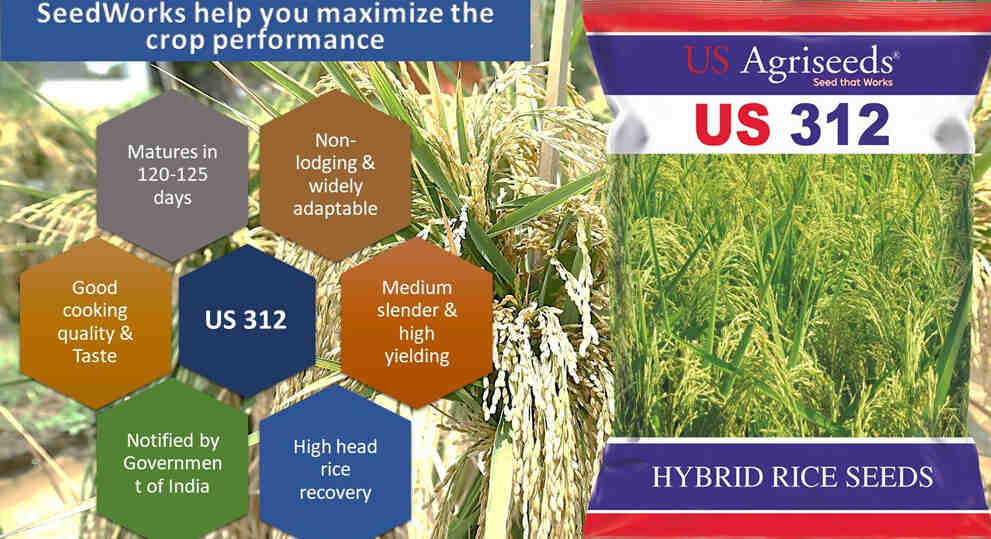In the realm of agricultural innovation, hybrid rice seed companies in India are playing a crucial role in transforming rice farming. With the global demand for rice on the rise and challenges like climate change impacting crop yields, these companies are employing various strategies to convince farmers to adopt hybrid rice varieties. This blog explores the effective approaches these companies use to drive adoption and enhance agricultural productivity.
Understanding Hybrid Rice
Hybrid rice is a type of rice that results from crossing different rice varieties to produce seeds with superior qualities, such as higher yields and better resistance to pests. Hybrid rice seed companies in India focus on developing and promoting these varieties to address the needs of farmers and meet growing food demands.
Tailored Seed Varieties
One of the primary strategies employed by hybrid rice seed companies is the development of tailored seed varieties. By understanding the specific needs of different regions and soil types, these companies produce hybrid seeds that are well-suited for diverse agricultural conditions. This localization approach ensures that the seeds can thrive in various environments, leading to better adoption rates among farmers.
Demonstration Plots
To showcase the benefits of hybrid rice, companies often set up demonstration plots. These plots allow farmers to see the performance of hybrid rice varieties firsthand. By witnessing the increased yields and improved quality of the rice, farmers are more likely to consider switching from traditional varieties. Demonstration plots serve as a practical proof of concept, bridging the gap between theory and real-world application.
Education and Training
Education and training play a crucial role in the adoption process. Hybrid rice seed companies in India invest in educating farmers about the advantages of hybrid varieties and the best practices for cultivation. This includes organizing workshops, field days, and training sessions. Providing hands-on experience and knowledge helps farmers understand how to maximize the benefits of hybrid rice, leading to higher adoption rates.
Collaboration with Agricultural Institutions
Partnerships with agricultural institutions are another effective strategy. By collaborating with research organizations and universities, hybrid rice seed companies can leverage scientific expertise to develop and promote new varieties. These collaborations also help in conducting field trials and research that validate the performance of hybrid seeds, providing farmers with credible information and building trust in the product.
Government Support and Incentives
Government support and incentives play a significant role in encouraging the adoption of hybrid rice. Hybrid rice seed companies often work with government agencies to provide subsidies or financial assistance to farmers. This support can help offset the initial costs associated with purchasing hybrid seeds and implementing new farming practices. Additionally, government-backed programs and schemes can raise awareness and facilitate the widespread adoption of hybrid rice.
Marketing and Communication
Effective marketing and communication strategies are essential for reaching farmers and promoting hybrid rice seeds. Companies use various channels, including print media, radio, and digital platforms, to disseminate information about their products. Engaging marketing campaigns, success stories, and testimonials from fellow farmers can help build credibility and persuade others to try hybrid rice varieties.
Technical Support and After-Sales Service
Providing ongoing technical support and after-sales service is crucial for ensuring successful adoption. Hybrid rice seed companies offer guidance on seed selection, planting techniques, pest management, and harvesting. This support helps farmers overcome challenges and ensures that they achieve the desired results with hybrid rice, leading to increased satisfaction and long-term loyalty.
Building Relationships with Farmers
Building strong relationships with farmers is fundamental to driving adoption. Hybrid rice seed companies in India focus on creating a rapport with the farming community through regular interactions and feedback mechanisms. By understanding the concerns and needs of farmers, companies can tailor their approaches and offer solutions that address specific challenges, fostering trust and collaboration.
Conclusion
Hybrid rice seed companies in India are at the forefront of revolutionizing rice farming through innovative strategies and approaches. By developing tailored seed varieties, setting up demonstration plots, investing in education and training, collaborating with agricultural institutions, and providing technical support, these companies are effectively driving the adoption of hybrid rice. With continued efforts and support, they are not only enhancing agricultural productivity but also contributing to food security and sustainable farming practices in India.






Comments